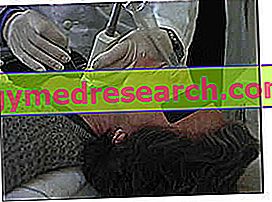
What is Velcade?
Velcade is a powder for solution for injection containing the active substance bortezomib.
What is Velcade used for?
Velcade is an anticancer medicine. It is indicated for the treatment of adults with multiple myeloma, a cancer of plasma cells in the bone marrow. Velcade is used for the following groups:
- patients who have not already received treatment and who cannot undergo high dose chemotherapy associated with bone marrow transplantation. In these patients, Velcade is used in combination with melphalan and prednisone (other medicines for multiple myeloma);
- patients with progressing disease (which worsens), who have not responded to any other treatment and who have already undergone, or cannot undergo, bone marrow transplantation. Velcade is used alone in this group of patients.
The medicine can only be obtained with a prescription.
How is Velcade used?
Treatment with Velcade should only be started and given under the supervision of a doctor experienced in the use of chemotherapy drugs for cancer treatment. The recommended starting dose of Velcade is 1.3 mg / m2 of body surface area (calculated according to the patient's height and weight). The solution is administered with a vein injection lasting three to five seconds, using a catheter (sterile tube).
When used in combination with melphalan and prednisone, Velcade is given twice a week in weeks 1, 2, 4 and 5 of a six-week treatment cycle. Said cycle must be repeated three more times, followed by five cycles of injections once a week. When used alone, Velcade should be given twice a week in weeks 1 and 2 of a three-week cycle. Patients who have fully responded to therapy are advised to receive two additional cycles, while patients responding to the therapy only partially should be given up to a maximum of eight cycles. If serious side effects occur after a therapeutic cycle, the treatment must be suspended and the dose modified.
How does Velcade work?
The active substance in Velcade, bortezomib, is a proteasome inhibitor. That is, it blocks the activity of the proteosome, a complex present within the cell responsible for the degradation of proteins that are no longer useful to the body. When the proteins contained in cancer cells, including the proteins that control cell growth, are not degraded, the cells suffer and die.
What studies have been carried out on Velcade?
The effectiveness of Velcade has been examined in four main studies.
The first study involved 682 patients who had not already received treatment and who could not be treated with high-dose chemotherapy associated with bone marrow transplantation. The study compared the effects of adding Velcade to melphalan and prednisone, with that of melphalan and prednisone alone.
The other three studies looked at patients who had already undergone at least one treatment and where their disease had worsened during the last treatment performed. In a study of 669 patients the efficacy of Velcade was compared with that of high-dose dexamethasone (another medicine for the treatment of multiple myeloma). In the other two studies, out of a total of 256 patients, Velcade was not compared to other therapies.
The main measure of effectiveness was the number of patients who responded to treatment and the time taken before the disease progressed.
What benefit has Velcade shown during the studies?
In patients never previously treated, the addition of Velcade to melphalan and prednisone increased the time taken before the disease progressed: it took on average 20.7 months for patients treated with Velcade and 15.0 months for patients treated only with melphalan and prednisone.
In patients previously treated, the time elapsed before disease progression averaged 6.2 months with Velcade and 3.5 months with dexamethasone in the comparative study. In the other two studies, a partial or complete response to treatment with Velcade was observed in approximately 34% of cases.
What is the risk associated with Velcade?
The most common side effects with Velcade (seen in more than one patient in ten) are herpes zoster (shingles), thrombocytopenia (reduction in blood platelets), anemia (reduction in the number of red blood cells in the blood), neutropenia (reduction in the number of white blood cells responsible for the defense of the body in infections), decreased appetite, peripheral neuropathy with paraesthesia (tingling or numbness and tingling sensation), headache, dyspnoea (difficulty breathing), nausea, diarrhea, vomiting, constipation, rash, myalgia (muscle pain), fatigue and pyrexia (fever). For the full list of all side effects reported with Velcade, see the Package Leaflet.
Velcade should not be used in patients who may be hypersensitive (allergic) to bortezomib, boron or any of the other components. Velcade should not be used in patients with severe liver disease, "acute diffuse infiltrative pneumopathy" (a serious lung disorder) or pericardial disease (affecting the fibrous sac that contains the heart).
Why was Velcade approved?
The Committee for Medicinal Products for Human Use (CHMP) decided that Velcade's benefits are greater than its risks for the treatment of multiple myeloma and therefore recommended that it be given marketing authorization.
Velcade has been authorized in "exceptional circumstances" since, for scientific reasons, it is not possible to obtain complete information on the medicine. The European Medicines Agency (EMEA) will review any new information available on the medicine annually and update this summary if necessary.
What information is still awaited for Velcade?
The company that makes Velcade will carry out further studies to examine, in particular, the distribution of Velcade in the body (especially in case of repeated doses) and the risk that patients develop amyloidosis (ie accumulation of a type of protein, called amyloid, in the body) or that the latter worsens.
More information on Velcade:
On 26 April 2004, the European Commission issued a marketing authorization for Velcade, valid throughout the European Union. The marketing authorization holder is Janssen-Cilag International NV. The marketing authorization was renewed on 26 April 2009.
For the full EPAR of Velcade click here.
Last update of this summary: 04-2009.



